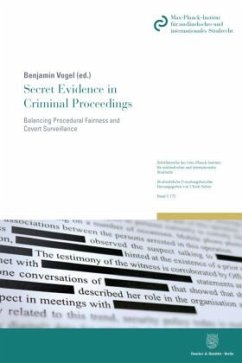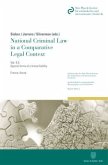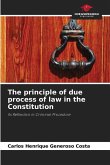Confronted with politically motivated violence and profit-driven organised criminality, legal orders extensively rely on covert surveillance measures to detect, avert, and investigate offences. The rise of such measures and the increasing role of intelligence-gathering as a criminal policy tool does, however, pose considerable challenges to the fairness of criminal proceedings. This volume seeks to address these challenges by inquiring into how legal orders, in the context of criminal trials and related provisional preventive measures, deal with confidential information that must not be disclosed to the defence. To this end, it analyses the criminal procedure law of numerous European countries as well as related frameworks at the UN and EU levels. Comparing these findings and adding an analysis of the jurisprudence of the European Court of Human Rights, the volume then outlines ways to safeguard fair-trial guarantees while respecting the operational needs of investigative authorities and intelligence agencies. The findings highlight how legal orders have increasingly accepted that the courts will often consider, in the assessment of the reliability of incriminating evidence, information that is not disclosed to the defence at any point during the proceedings. As a consequence, there is an urgent need to develop novel procedural approaches to improve judicial scrutiny of confidential material by strengthening the involvement of the accused and, at the same time, to prevent triers of fact at trial from becoming exposed to undisclosed material.
Bitte wählen Sie Ihr Anliegen aus.
Rechnungen
Retourenschein anfordern
Bestellstatus
Storno








